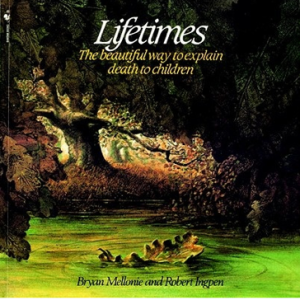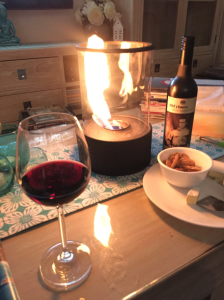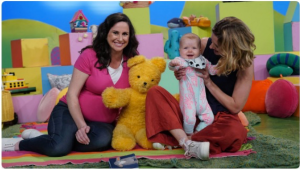Beginnings & Endings – With Lifetimes in between
Endings seem to be thematic for me at the moment, sitting alongside my hopes for an exciting beginning.
Today is the first anniversary of the death of my very dear friend, Ann, and missing her hurts. Poignant memories float in and out of my mind’s eye, and I wish so much I could talk with her – face to face. She would understand and commiserate about another ending that is staring me in the face, and then fan my excitement about a new beginning.
I’m surrounded by chaos, all created by efforts to downsize in readiness for a planned move to a smaller and more manageable home. The decision, while initially difficult to make, is timely and right. I will miss this familiar environment, my lovely neighbours, the lifestyle we have enjoyed for almost 12 years, and my home, filled with precious memories of family times, especially those spent with children. This is a living environment, and like all living things, must come to an end. I will grieve for this ending – for all the people and things I will miss – so that the space is cleared of unfinished business in readiness for the next part of our life’s adventure.
First Steps on the Path
As is my wont, I started with what seemed easiest – clearing out the book cases. Not as easy as I thought. A lifetime of collecting – precious children’s books, books from university days, books about the work that I love, books about the fascinating places I have visited, and a rich collection of novels. They’re now in piles – one for colleagues, one for a community library, one for friends, and one for charities.
Of course I have to read the back covers of every book once again, and warm myself with the loving inscriptions inside books that have been gifts. Then I read a few random pages in each book to make sure I’m not going to regret parting with them. Many sighs. Many deep breaths. A lifetime of memories revived and relived. Parting is such sweet sorrow.
 I picked up a book that I read to many children years ago, and found that my reaction is just as enthusiastic now as it was then. It’s called LIFETIMES, a book about beginnings and endings with lifetimes in between – written simply, factually, and sensitively by Bryan Mellonie and Robert Ingpen. I highly recommend this book for all families with young children as a way of introducing the subject of death from the very beginning of life. By the end of the book my focus had returned to the importance of the time between a beginning and an ending – the ‘in life’ time between.
I picked up a book that I read to many children years ago, and found that my reaction is just as enthusiastic now as it was then. It’s called LIFETIMES, a book about beginnings and endings with lifetimes in between – written simply, factually, and sensitively by Bryan Mellonie and Robert Ingpen. I highly recommend this book for all families with young children as a way of introducing the subject of death from the very beginning of life. By the end of the book my focus had returned to the importance of the time between a beginning and an ending – the ‘in life’ time between.
Next stop – drawers of paper work. Letters and cards from family, friends and colleagues – a record of relationships, of joy and sadness, of shared intimacies, of deep and abiding love and appreciation. I have re read every single page, every card – I have laughed and cried and often gone to bed exhausted, emotionally even more than physically. Which ones do I keep, which ones do I shred? To save space (my new home will be MUCH smaller) my mind has to become my filing cabinet, the guardian of my precious memories.
How long will my mind serve me well? Will I eventually succumb to the ravages of cognitive deterioration like my dearly loved sister, or my oldest friend?
Fortunately, the task at hand is so demanding I can’t spend too long in the realm of ‘what ifs’. NOW, as always, is important
Clearing the Decks
 As I discard what now seem like unnecessary possessions, I am imagining the symbolic shedding of ‘things’ extending to the shedding of extra kilos. Wishful thinking? Magic thinking? My husband reminds me that the extra kilos symbolise wonderful occasions shared with friends and family, and the ‘happy hour’ we spend together at the end of each day. I wonder if I can mentally file those memories to take with me without needing the physical reminder? I need to travel light this time round.
As I discard what now seem like unnecessary possessions, I am imagining the symbolic shedding of ‘things’ extending to the shedding of extra kilos. Wishful thinking? Magic thinking? My husband reminds me that the extra kilos symbolise wonderful occasions shared with friends and family, and the ‘happy hour’ we spend together at the end of each day. I wonder if I can mentally file those memories to take with me without needing the physical reminder? I need to travel light this time round.
Whatever the reality, I am sure I will enjoy having less objects to dust, and hope I will spend less time wondering what to wear, a process that’s already begun in anticipation. The words easy, simple, and natural are increasingly appealing.
As I mentioned, I will miss this familiar environment, but even more so, my current proximity to loved family, dear friends and special colleagues. Thank goodness for modern technology which will allow me to remain connected via phone calls, email, and text messages. High on the hopeful scale, I am anticipating sleep overs and other visits – the welcome mat will be one of our first purchases.
As familiar now as my next breath, the combination of grief and excitement will remain part of me, sitting companionably side by side, changing foreground and background positions from time to time. A new me, all set to enjoy the last part of my life’s journey, is in chrysalis form, impatiently waiting to emerge as a butterfly, even if a little too weighty to fly with ease. Life in a new environment will no doubt present challenges, but will also include new and stimulating adventures. I’m ready to pack for the journey.
On the Same Theme
 After reading the beautiful book I mentioned earlier – ‘Lifetimes’ – I watched the Playschool episode called ‘Beginnings and Endings’. A sensitive and child centred production, I am hoping many families will use its message to begin conversations about death with their children – long before they are grieving someone they know and love.
After reading the beautiful book I mentioned earlier – ‘Lifetimes’ – I watched the Playschool episode called ‘Beginnings and Endings’. A sensitive and child centred production, I am hoping many families will use its message to begin conversations about death with their children – long before they are grieving someone they know and love.
Preparation for life’s losses doesn’t mean that grief will be avoided or diminished in intensity. What it does mean is that everything about loss and grief – language, thoughts and feelings, behaviour and rituals, become familiar, and therefore less frightening.
The language of loss can be taught to children from the moment they are born. When we talk to our children, especially when we are walking in the garden, we can point out things that are living, things that are dying, and those that have died. As they develop, children can use their senses to become familiar with the difference between living, dying and dead – through sight, touch, sound, and sometimes smell. Blind children can touch, smell and hear; deaf children can touch and see; and all children can have important conversations with their parents, grandparents and other caregivers in which they can ask questions that will be answered truthfully.
Preparation for important life events can be empowering. Preparation allows our minds to rehearse, and in so doing, increases our ability to develop resilience. We tend to do this about experiences that are potentially enjoyable, building excitement in the process, as if, in anticipation, we are opening a receptor site for the enjoyment we anticipate. We need to do the same for life’s painful confrontations.
Research has shown that if we read the ending of a book we know might be disturbing, before we read the book from front to back, we can enhance our ability to process and enjoy its contents. We seem to deal better with the disturbing parts when our mind and emotions are prepared, and we can find hope or familiarity in the ending.
When we explain endings of all kinds, including dying and death to children, BEFORE they are bereaved or grieving significant losses, we are potentially empowering them. It’s important to build hope into these conversations. For example, when we explain that grief hurts because we love and miss someone or something, we can follow that with reassurance that we won’t always feel as sad as we do right now. We can still have things to look forward to. If that reassurance is followed by a fun activity, the truth of the message is reinforced.
Good & Bad Endings
Good endings tend to be those over which we have some control. For example, choosing to end a destructive relationship, leaving a job that is unsatisfying or stressful, moving to another house, suburb, city or country because the move promises to improve the quality of our life, or feels like an exciting adventure. When the ending is our choice, we can smooth the transition by acknowledging what will be lost, grieving, then moving on to the hope of what will be gained.
Bad endings tend to be those outside our control; homes and possessions destroyed by fire, flood or earthquake, a painful relationship break up not of our choosing, being retrenched, loved people moving overseas, and sudden death. Our mind has no opportunity to rehearse how we might build life around the event, and we are left feeling regressed and vulnerable.
Good & Bad Beginnings
How could a beginning possibly be bad, or experienced as bad? A few things spring to mind as I write those words. Birth, the beginning of our life’s journey, can be a difficult or ‘bad’ experience, but fortunately we don’t retain those details as a conscious memory, even if our mothers do.

Many children find their first day at pre school or day care distressing, and may later experience anxiety when moving from kindergarten to primary school, or primary to high school, and for some, from high school to university. If we are fortunate, parents and teachers will help us process any ‘bad’ feelings about those beginnings, and ensure that negative memories become background rather than foreground. Interestingly, few of us forget those early ‘firsts’.
The first day in a new job can create tension, especially if the work environment lacks warmth and feels unwelcoming. First dates can be a disaster, as can the beginning of a marriage or of parenthood. In fact, the beginning of most of life’s experiences could be described as fitting somewhere on the spectrum from ‘good’ to ‘bad’.
Preparation helps to minimise the potential negatives of most beginnings. Knowledge as they say, is power – first, about ourselves, our strengths, weaknesses, our wants and needs, then knowledge of our environment. Sometimes the order needs to be reversed. For example, self knowledge is a luxury if the struggle to survive is our experience from day one – we need to feel safe first. Unfortunately, for all too many folk, that feeling of safety is never experienced.
Those of us in more fortunate circumstances are in a privileged position to research and rehearse before we begin any new venture. We can access books on every imaginable topic and the internet can be a rich source of information. We can slow down when we are contemplating a new job, a different career path, a new relationship, a new home or country, retirement, and take a deep breath. We can ask for advice from those we consider wise and trustworthy, so that we can weigh up our options.
The general rule is ‘if in doubt, don’t’. What do I mean by that? There is no rush to make a good beginning – we simply need to postpone action until we have fully engaged with the idea that we are contemplating. Folk familiar with our teaching (Mal’s and mine) will also be familiar with us saying ‘you can only go as far as your engagement allows’, and that applies to most life situations. It’s important to ‘engage’ or fully connect with ideas, places, experiences and things, as well as people, to create ‘good beginnings’. Get to know important details about the firm where you hope to work, the course you want to study, the person you are thinking of spending your life with, the country you want to visit, the neighbourhood you imagine living in – engage with it, or them, then make your decision. Do your research – it will be time well spent.
Lifetimes
Beginnings and endings are part of life from the moment we draw our first breath until the very moment we expel our last. In between is our lifetime.
I have summarised my thoughts about lifetimes in a poem, and if the words seem familiar, that’s because I introduced them in another blog. I think the poem bears repeating because it joins the dots from beginnings to endings.
Life is…
a process,
a moving tapestry
of experiences…
of beginnings
and endings…
joy and laughter…
tears and sadness…
fears and uncertainties…
hurt and anger…
guilt and forgiveness…
the writing of a
book of memories…
a passionate gestalt.
Dianne McKissock from ‘In My Own Way’
At ‘A Friends’ Place’ many people are helped to build life anew after the death of someone they love. Endings and beginnings are their specialty
Help
Help is always available – at ‘A Friend’s Place’ or by contacting our outreach service.
Dianne McKissock OAM
NCCG Outreach Support Service
Email support for dying and bereaved people and anyone involved in their care






